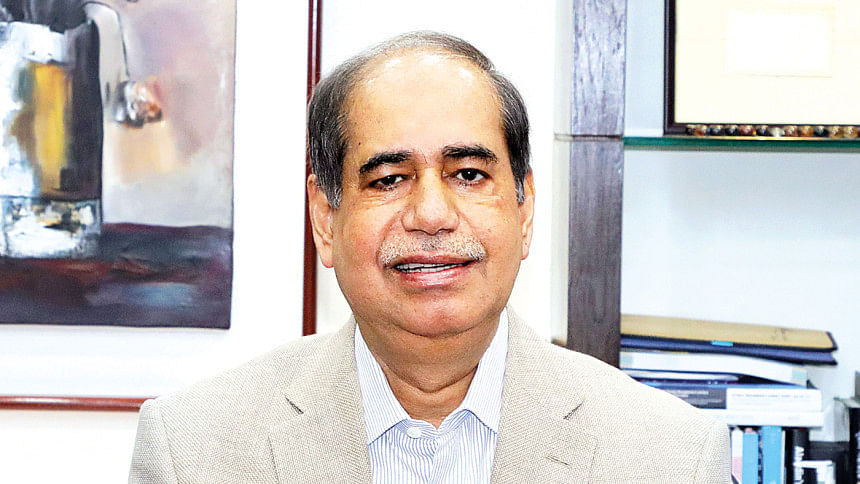Prioritising affordability for Bangladeshi consumers

Rezaul Karim Managing
Director Kohinoor Chemical Co (BD) Ltd. and Group Reedisha
The Daily Star (TDS): Could you provide an overview of your company's current position and performance in the cosmetics and toiletries sector?
Rezaul Karim (RK): The cosmetics and toiletries industry in Bangladesh has faced significant challenges in the post-Covid-19 era, further aggravated by the global economic recession. Volatility in international supply chains has led to rising costs of raw materials, packaging, and transportation. Consequently, high inflation in both food and non-food sectors has restricted consumer's spending power, thus creating an unfavourable environment for the consumption of cosmetics and toiletries products.
Despite these challenges, Kohinoor Chemical Co. (BD) Ltd. (KCCL) has consistently maintained reasonable product prices, prioritising affordability for Bangladeshi consumers. Upholding customer satisfaction as a core value, we remain committed to delivering superior products with strong value propositions at accessible price points. Our trusted brands—TIBET, SANDALINA, BACTROL, FASTWASH, TYFOON, ICE COOL, BEAUTINA, XPERT, CLEAN MASTER, and AM.PM.—have earned the loyalty of millions of consumers across Bangladesh.
TDS: How would you assess the current position and performance of local brands?
RK: The Bangladeshi market has long been dominated by global giants. Backed by international celebrity endorsements and aggressive marketing, these international players captivate consumers with bold and direct benefit claims and cross-border media influence. In an increasingly globalised landscape, Bangladeshi consumers often exhibit a preference for foreign brands, swayed by perceived superiority in product innovation and performance—reinforced by these companies' heavy investments in R&D.
TDS: What are the major challenges or barriers limiting the growth and expansion of the local cosmetics industry?
RK: The current taxation and duty structure in Bangladesh poses significant challenges for local investors, creating an unfavourable business environment. Additionally, the lack of firm government policies to curb imports has led to a surge in foreign products entering the market, fostering unregulated cross-border trade and undermining domestic industries. The government could impose higher supplementary duties on all imports to raise import barriers and thus create a level playing field for local entrepreneurs.
TDS: What are your company's current strategic priorities and future growth plans in the cosmetics sector?
RK: Kohinoor Chemical Co. (BD) Ltd. (KCCL) remains committed to expanding its reach, ensuring our products are accessible to more households across Bangladesh. As part of this mission, we are intensifying our distribution network to cover around 600,000 retail outlets, including rural markets, while also diversifying into new product categories to offer consumers greater choice.
TDS: What policy changes or government support are needed to drive further industry growth?
RK: The cosmetics and toiletries industry currently faces regulatory uncertainty, with no clear decision on whether oversight will remain with the Bangladesh Standards and Testing Institution (BSTI) or shift to the Drug Administration Authority of Bangladesh. For better relevance and compliance, retaining the sector under BSTI's supervision is advisable.
Frequent gas and electricity shortages severely disrupt production and efficiency in the industry. To sustain growth, uninterrupted power supply is essential. Additionally, the government's decision to raise gas connection rates by 33% for new users discourages existing businesses from expanding their operational capacity.

 For all latest news, follow The Daily Star's Google News channel.
For all latest news, follow The Daily Star's Google News channel. 



Comments